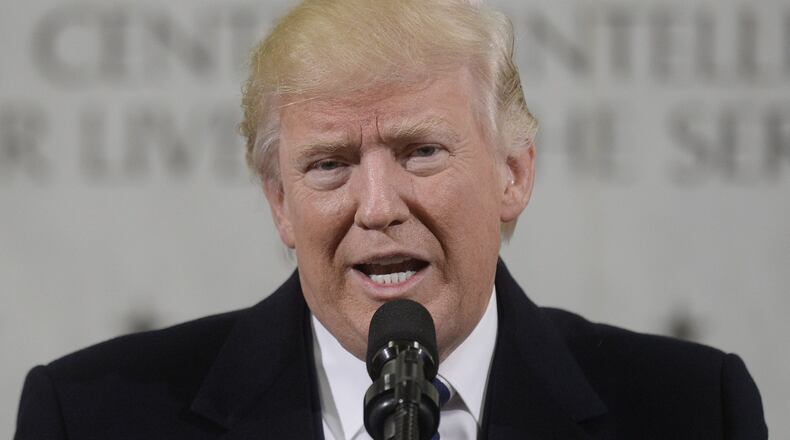The CBO projects that the debt held by the public will increase by $9.4 trillion during the next decade to nearly $25 trillion by 2027. Debt held by the public is money the government owes to individuals, financial institutions and countries which buy U.S. bonds and other securities.
The sobering numbers were released Tuesday as President Donald Trump and Republicans want to slash federal taxes and scrap the 2010 health law known as Obamacare. Budget analysts project that unless Republicans devise a substitute, repealing the 2010 law would add another $350 billion in debt during the next decade.
In addition, Sen. Sherrod Brown of Ohio and five other Senate Democrats Tuesday called for spending $1 trillion in federal dollars during the next decade on roads, bridges, water and sewer systems, and railways.
Trump has talked about using federal tax credits to encourage about $1 trillion in private spending for roads, bridges and other infrastructure projects.
Brown suggested any new spending on roads and bridges be paid for by “closing tax loopholes” on companies which keep earnings abroad.
In a conference call with reporters, Brown said while GOP plans to cut taxes “will blow a huge hole in the budget,” he insisted “there is a very high cost in doing nothing” about roads, bridges and airports.
The Senate Democrat plan would set aside $210 billion to repair roads and bridges, $110 billion to update water and sewer systems and $65 billion to refurbish airports, waterways and ports.
But the new tax and spending plans run smack into the CBO report, which shows that unless the government either raises taxes or restrains the growth in the federal retirement and health programs of Social Security, Medicare and Medicaid, it will be virtually impossible to balance the federal budget any time soon.
The report projects that in 2027, the federal government will spend more than $4 trillion on Social Security, Medicare, Medicaid, and interest on the debt during a year when the entire federal budget will be $6.5 trillion.
“CBO’s math is clear and undeniable—the debt is growing faster than the economy and on an unsustainable path,” said Maya MacGuineas, president of the Committee for a Responsible Federal Budget, a Washington, D.C.-based non-profit which champions lower deficits.
“We cannot continue this trend forever,” she said. “Policymakers should not go into debt denial with hopes that unrealistic growth and rosy projections will save the day. Ignoring these fiscal facts is like ignoring a coming storm. Our nation will be drowning under red ink if policymakers do not reverse course now.”
Emily Benavides, a spokeswoman for Sen. Rob Portman, R-Ohio, said “every American family has to balance their budget. Rob has consistently voted to rein in spending and put America on a more sustainable fiscal path, and he believes both parties must work together to finally address these challenges.”
About the Author
